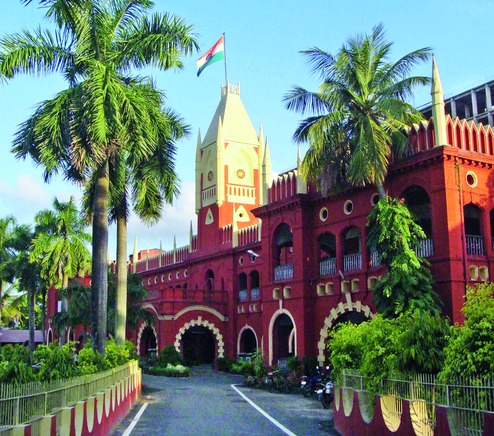
Cuttack, April 17: Over 12 years ago, Duleswar Barik, the lone son of a poor farmer, had unleashed a blood bath by hacking to death six persons, including three women.
A year later, the trial court sentenced Duleswar to death. However, he moved Orissa High Court, which acquitted him after three years.
However, Duleswar, 32, remained imprisoned till a high court division bench of Justice Vinod Prasad and Justice S.K. Sahoo found him to have been "illegally detained in the garb of fake excuse that he is mentally insane" and ordered his release on September 3, 2014.
Today, the high court bench directed the state government to pay compensation of Rs 20 lakh to Duleswar, who, in spite of acquittal in a multiple-murder case, was not released from jail and kept in prison for seven years.
The court ruled that Duleswar was entitled to adequate compensation as he was found to be a sane man, who was not dangerous to the society at all and illegally detained by the authorities inside the jail and robbed of all the fruits of life for seven years.
"The pining in the eyes of a 60-year-old frail father to see his lone son outside the jail moved me to take up the case although it promised no pecuniary benefits. But when I had filed a petition in 2011 (which was rejected) and followed up with another in 2014, little did I expect that a plea for release on bail would end up in his complete freedom seven months ago and such high compensation," Duleswar's counsel Prafulla Kumar Kar told The Telegraph.
"What was pathetic was that Duleswar only came to know after his release that his mother had died during his illegal detention in jail," Kar said.
Duleswar, a matriculate, had on January 8, 2003 murdered six persons at Alapata village in the Kingirikila police station limits in Sundargarh. Upon conviction, the court of additional sessions judge, Sundargarh sentenced him to death on July 27, 2004.
The death sentence was taken up for confirmation by the high court. Advocate Gautam Mishra, who conducted the case on behalf of Duleswar in pursuance of the high court order, argued that no punishment could be given to him as he was of unsound mind at the relevant time and entitled to an order of acquittal.
Allowing it, the high court on September 19, 2007, set aside the death sentence and ordered: "The accused shall be examined by an expert, preferably, by a professor of the department of psychiatry of any of the government medical colleges and hospitals in the state, and if he certifies that it is safe to set him at liberty, he shall be set at liberty immediately thereafter. But if the said expert finds otherwise, the accused shall be rendered necessary treatment as an indoor patient in any of the said medical colleges and hospitals."
However, he was kept in Sambalpur jail and his treatment was not done properly in letter and spirit. On his behalf, his father, Rangaballav Barik, moved the high court for his release on bail.
After interacting with Duleswar in open court on September 2 last year, the court was "confident that he is a sane person" and had "no doubt that presently he is not suffering from any mental ailment".
The court ordered for his release forthwith on that day. "It is obviously meant that Duleswar was acquitted of the charge and after the judgment was pronounced on September 19, 2007, he became a free man as he was never wanted in any other case or has any criminal background to his credit. In spite of acquittal, he was not released from jail. It is, therefore, evident that he had remained in jail without any authority for seven years," the court observed in its order.
"A person although may be suffering from mental ailment, once cured and acquitted by a court of law, could not have been confined in jail by any stretch of imagination. The act of the state and jail authorities impinges upon fundamental right of an individual to lead a life, free of all shackles," the court further observed, while keeping the matter of determination of compensation pending at the request of the state government.
While pronouncing the judgment on the issue of compensation today the division bench directed the state government to deposit Rs 20 lakh with the high court registry within four weeks.
The court, in its order, said the compensation amount would be kept in a fixed deposit account in the name of Duleswar for five years in a nationalised bank. The order specified that he can only withdraw the interest accrued on it during the period and gave him the liberty to use the amount according to his wish only after five years.











